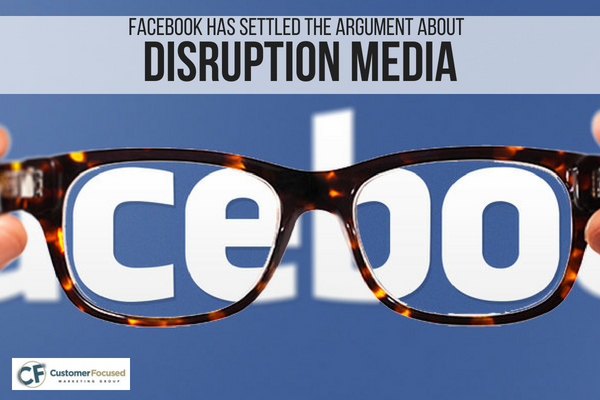When Facebook, the 80-pound digital gorilla, needed to rebrand itself and try to re-attract an audience, it chose television to do so. I have never been comfortable with the way digital media evangelists choose to position broadcast media as “disruption media”. I am not saying that I don’t believe in the tremendous strength of social media, because I do. However, the continuing efforts since the very dawn of social media to reposition broadcast media by somehow inferring that people are no longer willing to consume free media in return for being exposed to advertising messages is more about inbound and outbound marketing here. As a marketing company that strives to be agnostic about which is the most powerful media, the Customer Focused Marketing Group focuses on what media is best suited and cost effective for our clients to achieve their business goals.
When Facebook decided that they needed to reach a large audience and deliver a powerful branding message, which also would invoke positive emotion, they chose television. Do I believe that they are also probably engaged in utilizing a lot of the resources of their own digital platform? Of course. I have always advocated that for those clients, who have the financial resources to have a significant impact on a market, the combination of broadcast and well targeted digital will yield better results than either would individually. I’ve always appreciated the zeal and enthusiasm that various professional media people have for their platform or product. I’ve never felt that in order for a media to establish its value, it has to diminish the value of another. People in communities are complex and diverse, so it makes sense to me to reach them effectively, you have to use a diverse and complex marketing strategy. Of course, there are some media which were once extremely powerful. However, with a growth in technology, they have seen a slow or in some cases rapid reduction in their effectiveness. Yellow pages is rapidly the most significant example but the struggles that newspapers are having are not insignificant. An objective look at the decline of both of these medias would indicate that in many cases if they adjusted their rate structure and business approach they could maintain viability for some clients. Is it reasonable to assume there will come a day they will cease to exist? In the case of printed Yellow Page directories, definitely. The jury is still out on newspapers.
Broadcast, on the other hand, is still an extremely vibrant media. The site sound and emotion of TV and the incredibly large distribution has helped TV maintain its top position as an advertising media. That statement, in no way diminishes the continuing growth and power and marketing utility of digital platforms.



